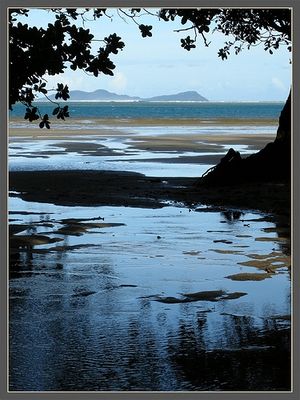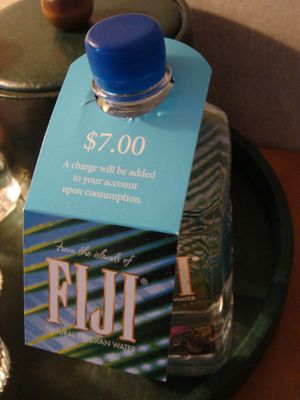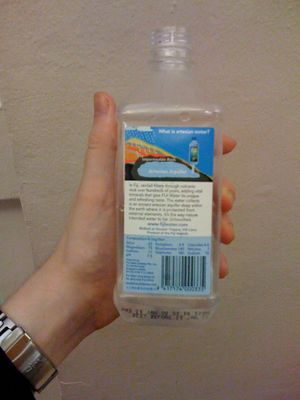
"On a remote Pacific island, 1,600 miles from the nearest continent, equatorial trade winds purify the clouds that begin FIJI Water's journey through one of the world's last virgin ecosystems. As tropical rain falls on a pristine rain forest, it filters through layers of volcanic rock, slowly gathering the natural minerals and electrolytes that give FIJI Water its soft, smooth taste. The water collects in a natural artesian aquifer, deep below the Earth's surface, shielded from external elements by confining layers of impermeable rock. Natural pressure forces the water towards the surface, where it's bottled at the source, free from human contact until you unscrew the cap. Perfected by nature. Untouched by man. The Nature of Water™." (excerpt from FIJI Waterweb page)

FIJI Water is one of the most popular imported bottled water for the United States and over 50 other countries across the world. It has become a favorite of many celebrities and has made many claims to being environmentally friendly. In 2007 FIJI Water launched its FIJI Water Foundation that had three main goals. 1) providing clean water access to rural communities; 2) building educational facilities and infrastructure that benefit children, teenagers and adults; and 3) providing access to healthcare services to underprivileged communities. FIJI Water also claims to work closely with Conservation International. In both the conservation of Fiji's largest remaining unprotected rain forest, the Sovi Basin and on a large-scale reforestation project to restore a total of 2,800 acres of degraded grasslands on the island of Viti Levu.

FIJI Water is also a member of 1% For The Planet and has been since 2009. (1% For The Planet is a group of companies that donate 1% of their sales to a global network of organizations committed to the preservation and restoration of the natural environment.)
On the surface FIJI Water seems like an eco-friendly consumers dream come true, but once you start to research the company, you find that things are not quite as perfect as they seem to be. The article Fiji Water: Spin the Bottle by Anna Lenzer, published in the September/October 2009 issue of Mother Jones, that tells of her experiences and arrest in Fiji. This article raises the question of whether or not FIJI Water is really as environmentally friendly as it says it is, and heavily implies that the Fijian government is more concerned with the international image of FIJI Water than it is with the truth of its practices. Lenzer writes about her arrest in Fiji,
Eventually, it dawned on me that his [the Fijian police officer] concern wasn't just with my potentially seditious emails; he was worried that my reporting would taint the Fiji Water brand.
In a more recent article Shelley Bridgeman: Does Fiji Water leave a bad taste?, published in The New Zealand Herald on October 17, 2013, the fact that the pure water bottled by FIJI Water is shipped all over the world, while native Fijians face faulty water supplies and typhoid outbreaks due to the lack of fresh water. "There are two types of Fiji water;... the ubiquitous bottled goodness and... the stuff that comes out of the nation's taps, sometimes with shells, frogs and invisible typhoid and gastroenteritis bacteria."
These two articles alone make a person wonder if FIJI Water is really as environmentally friendly as they claim to be. I decided to find out for myself if these accusations were founded. I went to FIJI Waters web page and I submitted an inquiry for a statement dealing with these issues on multiple occasions and while I did receive a confirmation of receipt for my emails, I have yet to hear from a FIJI Water spokesperson to address these concerns. In my mind the lack of communication is damming, and I for one will not be buying FIJI Water until these concerns have been addressed.
See also[edit | edit source]
- Bottling The Negativity Fiji Water Brands
- Artesian Aquifer
- Huffington Post: Fiji Water
- FIJI Water accused of Environmentally Misleading Claims
External links[edit | edit source]
- Fiji: Spin The Bottle by Anna Lenzer
- FIJI Water
- Shelley Bridgeman: Does Fiji Water leave a bad taste?